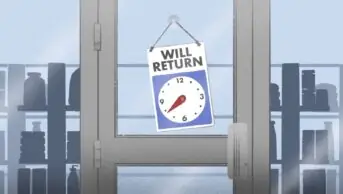
Courtesy of Numark
John D’Arcy is currently managing director of Numark, which provides independent pharmacies with professional and commercial advice, online tools and other essential support for running a successful and profitable business. He has also been chief executive of the National Pharmacy Association, the trade association for independent community pharmacy professionals in the UK.
Is community pharmacy in a better or worse place as you leave compared with when you joined, and why? Do other healthcare professionals and the public have a better understanding of what pharmacists do?
Pharmacy is definitely in a better place than it was when I started. At that time, the public did not know who we were and called us chemists or dispensers. Starting in the 1990s, there has been better understanding among the general public and more collaboration with other healthcare professionals. Alongside that, we have seen the emergence of improved products for minor ailments and many treatments moving from prescription only to pharmacy (POM to P), so we are able to do more for patients who come to us and have taken on a broader healthcare role.
At a political level we have seen greater recognition, for example, through the All-Party Pharmacy Group, but there is still a problem in converting ‘warm words’ and political rhetoric into action.
How should pharmacy organisations and leadership bodies handle the continued funding cuts in community pharmacy in England?
The cuts in funding for community pharmacy in England and what happened during the judicial review demonstrated the continuing lack of understanding about how pharmacists work and are paid. When the government said it would cut £170m of funding, the profession was right to go to court rather than roll over and be seen as a soft touch. Judge Collins demonstrated considerable sympathy for our case in his judicial review and was very critical of the Department of Health (DH) and the complete breakdown of its relationship with the Pharmaceutical Services Negotiating Committee.
Our fragmented voice in England allows the government to divide and rule
However, we now need to get back to the table to develop a shared specification and a contract that reflects modern pharmacy practice. The starting point should be to ask the government what they want from pharmacy services — it is probably broader than what it thinks it wants — and then it’s up to us to say what we can do. At present, agreement may seem a long way off but we have to remember that we have a shared ambition for achieving the best for patients and must all work towards that.
As a profession, we need a more ‘joined up’ message about our contribution to the health of communities and the impact we make. For example, the DH has completely ignored the finding from last year’s PricewaterhouseCoopers report that community pharmacies have been saving the NHS £3bn per year. Whatever our message is, we need to reduce it to something that is simple, straightforward, consistent and replicable. We need a single voice; that is happening in Scotland and Wales and likely to happen in Northern Ireland, but our fragmented voice in England allows the government to divide and rule.
What are the other big issues facing community pharmacy in the next five years and how would you like them addressed?
In no particular order: integration within primary care, consistent service provision, resourcing and workload management.
Community pharmacists need to be fully integrated into primary care and resourced to deliver value-for-money healthcare. We need to re-educate people to react differently to the NHS so they do not always go to their GP and they understand that the pharmacist is another option. However, we will not get close to integration until we have respective primary care contracts that dovetail with each other and we need to move away from the idea that pharmacists are just a triage service for GPs. Patients should be referred to pharmacists, for example, for a medicines review, in the same way they are referred to any other NHS service.
As the pharmacist’s contract becomes more focused on the quality of care we provide for patients, we will not physically be able to check every prescription
As prescription volume increases and pharmacists take on a bigger role, we will need to look at optimal skill mix and how to attract and retain good staff. What part does automation play? Can we use the patient medication record system as a business management tool? What place is there for robots? Some people do not want to talk about ‘hub-and-spoke’ models but the government is [talking about it], so we need to understand it too, in order to comment effectively.
What is your view on pharmacist supervision in community pharmacies?
The unique selling point for any pharmacy should be that a pharmacist is available whenever it is open, without the need for an appointment. However, access to that pharmacist is always going to be limited if he or she is inextricably linked to dispensing. Of course, I agree that the pharmacist should supervise what is happening in the pharmacy, and I understand the argument that pharmacists need to check all prescriptions because they are legally responsible. But that is like the chief executive of Costain saying he has to check that every railway sleeper is nailed down because he will be held liable if there is an accident.
Pharmacists who stick with supervising the dispensing of every prescription could ultimately be making themselves redundant
Responsibility and accountability do not need to rely on involvement in every step of the process; they are about developing and maintaining quality assurance in the pharmacy. As the pharmacist’s contract becomes more focused on the quality of care we provide for patients, we will not physically be able to check every prescription.
The time has come to have a proper discussion and debate about what supervision really means in community pharmacy. The current interpretation is outdated and it stops pharmacists from getting into wider roles and makes them more vulnerable to automation. Arguably, machines will always be better and more accurate than humans, so pharmacists who stick with supervising the dispensing of every prescription could ultimately be making themselves redundant. We need to look at the bigger picture.
What do you think of the decriminalisation legislation that has been laid before parliament? Is it fit for purpose?
It is good to see that the ‘decriminalisation’ legislation has been laid before parliament. After much promising from the powers that be, it has been a long time coming. However, it is only a partial solution to the problem. Rather than scrapping the offence, the new legislation will provide a defence against prosecution in the case of straightforward human error and will go some way to removing from practising pharmacists, the spectre of a strict liability prosecution for a dispensing error.
The provision in the Medicines Act that provides for such prosecutions (S64) is anachronistic and sees pharmacists being placed in an invidious position when compared with other health professionals. And a S64 prosecution is not a theoretical possibility — it has been used on many occasions as a means of securing a prosecution. The most recent high profile example is that of Martin White, a pharmacist from Northern Ireland, following an inadvertent dispensing error. His prosecution and subsequent finding of misconduct has blighted his professional career and created much concern within the profession.
We need to be able to differentiate between an accident that happens in a pharmacy that is being run recklessly with no standard operating procedures, and an innocent mistake in a typical well-run, well-organised pharmacy handling a high volume of prescriptions. Section 64 does not do that and, through an appropriate defence, the right balance can be struck when taking a view on prosecution. In addition, if we are going to have a debate about supervision, we need Section 64 out of the way.
Time will tell whether the new legislation is fit for purpose. It provides a defence against prosecution — a step in the right direction — but this defence has attached to it a number of conditions that are likely to be subject to considerable legal interpretation. For community pharmacists’ sake, I hope it is a long time in the testing.
What challenges do you foresee with implementing parts of the Falsified Medicines Directive in community pharmacies?
Where do you start? Of course we need to prevent counterfeit medicines getting to patients, but this is a sledgehammer to crack a nut. I accept there are some counterfeits out there, but I think the problem is exaggerated. We are required to implement the directive into UK law by 9 February 2019 and I do not believe that leaving Europe will affect that because any new trade deals will need to be underpinned by common standards for medicines authentication. That gives us 18 months, but there is no clarity about the process so that makes it very hard to prepare.
I accept there are some counterfeits out there, but I think the problem is exaggerated
For pharmacists, the key point of the directive is that we will have to scan the medicine at the point of supply to the patient. But does that mean when I seal it in a bag and put it on the shelf or when I hand it to the patient? What happens with split packs and, if the medicine is dispensed through a hub-and-spoke system, who is the dispenser?
Once I have scanned the medicine, I will have ten days to recommission it if no one comes to collect it, and I don’t know how that will work. I also do not know how I will recommission products coming from other European countries as parallel imports because they will have been decommissioned when they were exported. There is no IT system for this, and what do you do when the system breaks down — as will inevitably happen.
To me, the directive is a dog’s breakfast that is incompatible with what we do and shows the difficulty of arm’s length bureaucracy trying to impose a ‘one size fits all’ deal on multiple different healthcare systems.
What advice would you give to community pharmacists entering the profession now?
It is a great profession, go ahead and make a difference! You will only get out of it what you put in, and we need individuals with passion and enthusiasm who can contribute and shape the pharmacy agenda so it is fit for the future. Stand up and be counted!
If you could ask the new pharmacy minister to do one thing for the profession, what would it be?
Make community pharmacy an equal partner with other professions in primary care. Allow us to have a say in the shaping and delivery of a primary care strategy. Give us a seat at the top table with a view to getting community pharmacy fully integrated into primary care services. Invest in community pharmacy!


